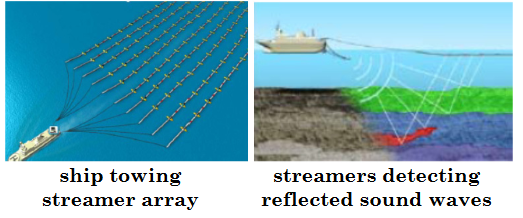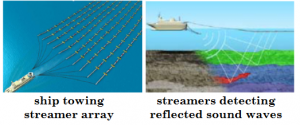Argument preview: Justices to grapple again with patent infringement overseas

on Apr 9, 2018 at 2:43 pm

On the first morning of the Supreme Court’s April session next week, the justices will return to problems of extraterritorial patent infringement, hearing argument in WesternGeco v Ion Geophysical Corp. For the third time in recent years, the court will consider Section 271 of the Patent Act. The statute was adopted in response to the court’s 1972 holding in Deepsouth Packing v Laitram Corp. that the Patent Act does not provide a remedy for overseas patent infringement. Deepsouth was an early example of a presumption against extraterritoriality, which has come to loom quite large in the Supreme Court’s recent jurisprudence. Traditionally, under that canon of construction, a statute applies only to conduct within the United States unless Congress explicitly indicates a contrary intent.
In the particular case of Deepsouth, though, Congress moved quickly to reject a categorical protection for overseas infringement. Specifically, Section 271 provides a narrow exception that permits a suit for infringement of a domestic patent when components are made in the United States and shipped abroad for assembly into the patented device. In Microsoft v AT&T, in 2007, the justices clarified how the statute applies when software is transmitted from the United States but copied overseas. Last term, in Life Technologies v Promega, the justices considered how many components have to be shipped overseas for the statute to apply. The issue here is whether the damages for a violation of Section 271 can include not only royalties on the infringing assemblies, but also lost profits for overseas contracts the patentholder would have obtained if the infringement had not occurred.
WesternGeco (formerly Western Geophysical) owns several patents that are used to search for oil beneath the ocean floor. Ion manufactured and shipped abroad components that, when assembled, infringed the WesternGeco patents. Accordingly, Ion was held liable under Section 271 and obligated to pay WesternGeco a reasonable royalty for the assemblies that it had exported (about $12 million). WesternGeco also showed that it would have earned $90 million in profits from contracts that it would have made with Ion’s customers had Ion not sold them the assemblies. Because patentholders ordinarily are entitled under Section 284 of the Patent Act to recover lost profits in addition to royalties, the district court awarded the lost profits. On appeal, however, the U. S. Court of Appeals for the Federal Circuit vacated the lost-profits award, reasoning that WesternGeco would have performed the lost contracts overseas, and that awarding damages for the loss of those contracts was an impermissibly extraterritorial application of the patent law.
WesternGeco, the patentholder, argues that the presumption against extraterritoriality should have little or no role here, because Section 271 was enacted as an exception to that presumption. From that perspective, a court that finds infringement that falls within the exception carved out by Section 271 should award traditional patent damages as a remedy for that conduct. Any other result, WesternGeco contends, would leave the patent holder undercompensated for indisputably sanctionable infringement.
For its part, the infringer, Ion, maintains that the presumption against extraterritoriality must be applied separately to each statutory provision. Because nothing in Section 284 suggests an intention to sanction extraterritorial conduct, the presumption against extraterritoriality should make courts cautious to award damages for hypothetical contracts that would have been performed wholly outside the boundaries of the United States. In an effort to rebut WesternGeco’s argument that denial of lost profits leaves a patentholder undercompensated, Ion emphasizes that WesternGeco already has received a reasonable royalty for the infringing assemblies. Awarding lost profits that are several multiples of a reasonable royalty, Ion suggests, cannot be justified without some reference in Section 284 justifying extraterritorial application.
Because the presumption against extraterritorial application is an entirely judicial gloss, it is not easy to predict how the justices will react to these arguments. My guess is it would be most useful to watch for the views of Justice Samuel Alito (who authored an opinion broadly applying the presumption against extraterritoriality in 2016, in RJR Nabisco v. The European Community) and Justice Sonia Sotomayor (who wrote last term’s opinion in Life Technologies narrowly interpreting Section 271). I would expect those justices to be as skeptical of the patentholder’s arguments as anybody. Without their support, Ion will have a tough time eking out an affirmance of the Federal Circuit.



